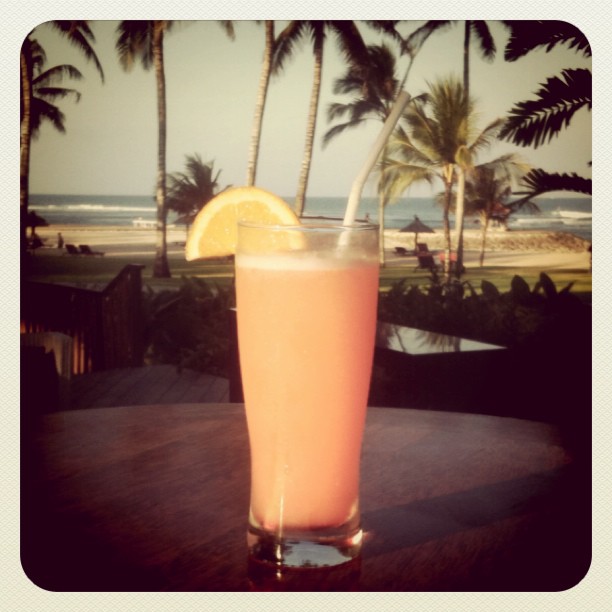Compliance with Florida’s Cocktails-to-Go Law

A Short History of Cocktails-to-Go in Florida
Sale and delivery of vendor-prepared alcoholic beverage drinks–Cocktails-to-Go–will be permanent authorized under the Florida Beverage Law beginning July 1, 2021. Cocktails-to-Go were first introduced in March 2020 as part of Governor DeSantis’ Executive Order 20-71 limiting restaurants’ dine-in service, in response to the COVID pandemic. Introduced as Senate Bill 148 and House Bill 329 during the 2021 Florida Legislative Session, the bills were passed by both houses and signed by the governor on May 13, 2021, becoming Florida Law Chapter 2021-30.
Update: The Florida Division of Alcoholic beverages and Tobacco (ABT) produced Information Bulletin 2021-001 to address the interpretation and enforcement of Florida Law Chapter 2021-30. The Information Bulletin contains brief descriptions of the changes made by the law and Frequently Asked Questions and Answers.
Strict Rules for Selling Cocktails-to-Go
Subject to a number of conditions, certain restaurants and bars are authorized to sell and deliver alcoholic beverage drinks prepared and sealed by the vendor, as well as manufacture-sealed beer, wine, and liquor, for off-premises consumption (referred to here and elsewhere as “Cocktails-to-Go”). Following is a discussion of those conditions.
1. Only Restaurants are authorized to sell Cocktails-to-Go. Cocktails-to-Go can only be sold by restaurants (that is, public food service establishments licensed by the Division of Hotels and Restaurants) that hold either a 4COP quota license or a 4COP-SFS license (also known as an “SRX” license). However, the new law does not limit the ability of breweries and other retailers authorized to sell beer in growlers under existing law.
2. Cocktails-to-Go must be sealed by the manufacturer or by the restaurant. Authorized restaurants are permitted to sell and deliver both manufacturer-sealed beer, wine, and liquor beverages and alcoholic beverage drinks prepared and sealed by the restaurant. Only restaurants with a 4COP quota license are permitted to sell bottles of distilled spirits sealed by a manufacturer.
3. Cocktails-to-Go must be accompanied by the sale of food within the same order. For restaurants with a 4COP quota license, the charge for the sale of food and nonalcoholic beverages must be at least 40% of the total charge for the order.
4. Cocktails-to-Go cannot be sold after the restaurant ceases preparing food for the day or after midnight, whichever is earlier.
5. There are strict requirements for packaging Cocktails-to-Go. Alcoholic beverages, other than manufacturer-sealed containers, must be placed in a container securely sealed by the restaurant with an unbroken seal that prevents the beverage from being immediately consumed before removal from the premises. The beverage container must also be placed in a bag or other container and secured in a manner that it is visibly apparent if the container has been subsequently opened, and a dated receipt for the alcoholic beverage and food must be attached to the bag or container.
As an example of this packaging requirement, imagine that a restaurant employee pours a margarita into a plastic container with a tight fitting lid, then uses electrical tape around the entire lid. The employee then puts the plastic container into a paper bag and staples the top of the bag closed. The employee then staples a copy of the receipt to the bag.
6. Beer that is filled in a container by the restaurant must comply with the size, labeling, and filling requirements that apply to growlers and similar containers.
7. Cocktails-to-Go, other than manufacturer-sealed containers, must be placed in a locked compartment, a locked trunk, or behind the last upright seat when transported by motor vehicle.
8. It is illegal to allow any person under the age of 21 to deliver alcoholic beverages. An agent or employee of the restaurant is required to verify the age of the delivery person before allowing him or her to take possession of an alcoholic beverage. In other words, check each delivery person’s driver license.
Do you have questions about compliance with Florida’s Cocktails-to-Go Law? Contact us at contact@brewerlong.com to schedule a consultation.
Because we’re attorneys: This blog post is provided on an “as is” and “as available” basis as of the date of publication. We disclaim any duty to update or correct any information contained in this blog post, including errors, even if we are notified about them. To the fullest extent permitted by law, we disclaim all representations or warranties of any kind, express or implied with respect to the information contained in this blog post, including, but not limited to, warranties of merchantability, fitness for a particular purpose, title, non-infringement, accuracy, completeness, and timeliness. We will not be liable for damages of any kind arising from or in connection with your use of or reliance on this blog post, including, but not limited to, direct, indirect, incidental, consequential, and punitive damages. You agree to use this blog post at your own risk. Regarding your particular circumstances, we recommend that you consult your own legal counsel–hopefully BrewerLong.

